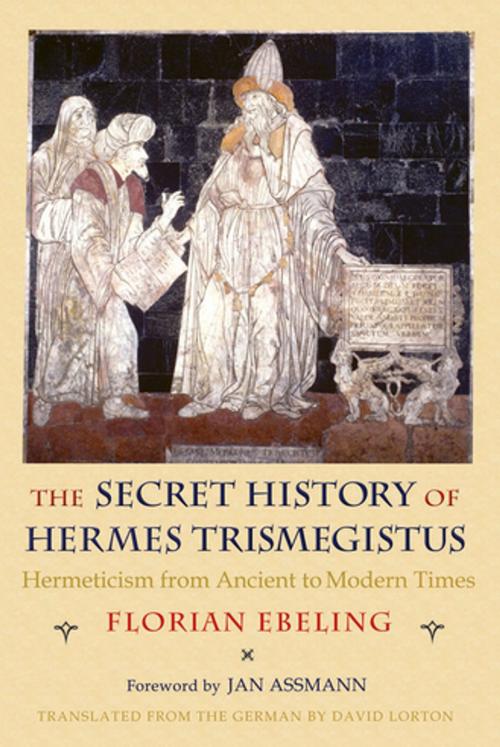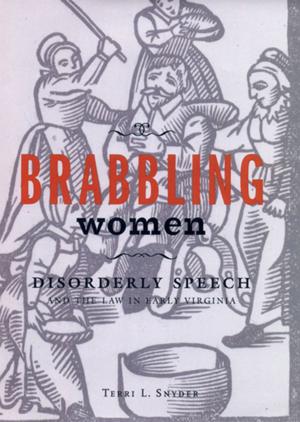The Secret History of Hermes Trismegistus
Hermeticism from Ancient to Modern Times
Nonfiction, History, Ancient History, Egypt, Religion & Spirituality, Philosophy, Mind & Body| Author: | Florian Ebeling | ISBN: | 9780801464881 |
| Publisher: | Cornell University Press | Publication: | September 1, 2011 |
| Imprint: | Cornell University Press | Language: | English |
| Author: | Florian Ebeling |
| ISBN: | 9780801464881 |
| Publisher: | Cornell University Press |
| Publication: | September 1, 2011 |
| Imprint: | Cornell University Press |
| Language: | English |
"Perhaps Hermeticism has fascinated so many people precisely because it has made it possible to produce many analogies and relationships to various traditions: to Platonism in its many varieties, to Stoicism, to Gnostic ideas, and even to certain Aristotelian doctrines. The Gnostic, the esoteric, the Platonist, or the deist has each been able to find something familiar in the writings. One just had to have a penchant for remote antiquity, for the idea of a Golden Age, in order for Hermeticism, with its aura of an ancient Egyptian revelation, to have enjoyed such outstanding success."—from the Introduction
Hermes Trismegistus, "thrice-great Hermes," emerged from the amalgamation of the wisdom gods Hermes and Thoth and is one of the most enigmatic figures of intellectual history. Since antiquity, the legendary "wise Egyptian" has been considered the creator of several mystical and magical writings on such topics as alchemy, astrology, medicine, and the transcendence of God. Philosophers of the Renaissance celebrated Hermes Trismegistus as the founder of philosophy, Freemasons called him their forefather, and Enlightenment thinkers championed religious tolerance in his name. To this day, Hermes Trismegistus is one of the central figures of the occult—his name is synonymous with the esoteric.
In this scholarly yet accessible introduction to the history of Hermeticism and its mythical founder, Florian Ebeling provides a concise overview of the Corpus Hermeticum and other writings attributed to Hermes. He traces the impact of Christian and Muslim versions of the figure in medieval Europe, the power of Hermeticism and Paracelsian belief in Renaissance thought, the relationship to Pietism and to Freemasonry in early modern Europe, and the relationship to esotericism and semiotics in the modern world.
"Perhaps Hermeticism has fascinated so many people precisely because it has made it possible to produce many analogies and relationships to various traditions: to Platonism in its many varieties, to Stoicism, to Gnostic ideas, and even to certain Aristotelian doctrines. The Gnostic, the esoteric, the Platonist, or the deist has each been able to find something familiar in the writings. One just had to have a penchant for remote antiquity, for the idea of a Golden Age, in order for Hermeticism, with its aura of an ancient Egyptian revelation, to have enjoyed such outstanding success."—from the Introduction
Hermes Trismegistus, "thrice-great Hermes," emerged from the amalgamation of the wisdom gods Hermes and Thoth and is one of the most enigmatic figures of intellectual history. Since antiquity, the legendary "wise Egyptian" has been considered the creator of several mystical and magical writings on such topics as alchemy, astrology, medicine, and the transcendence of God. Philosophers of the Renaissance celebrated Hermes Trismegistus as the founder of philosophy, Freemasons called him their forefather, and Enlightenment thinkers championed religious tolerance in his name. To this day, Hermes Trismegistus is one of the central figures of the occult—his name is synonymous with the esoteric.
In this scholarly yet accessible introduction to the history of Hermeticism and its mythical founder, Florian Ebeling provides a concise overview of the Corpus Hermeticum and other writings attributed to Hermes. He traces the impact of Christian and Muslim versions of the figure in medieval Europe, the power of Hermeticism and Paracelsian belief in Renaissance thought, the relationship to Pietism and to Freemasonry in early modern Europe, and the relationship to esotericism and semiotics in the modern world.















